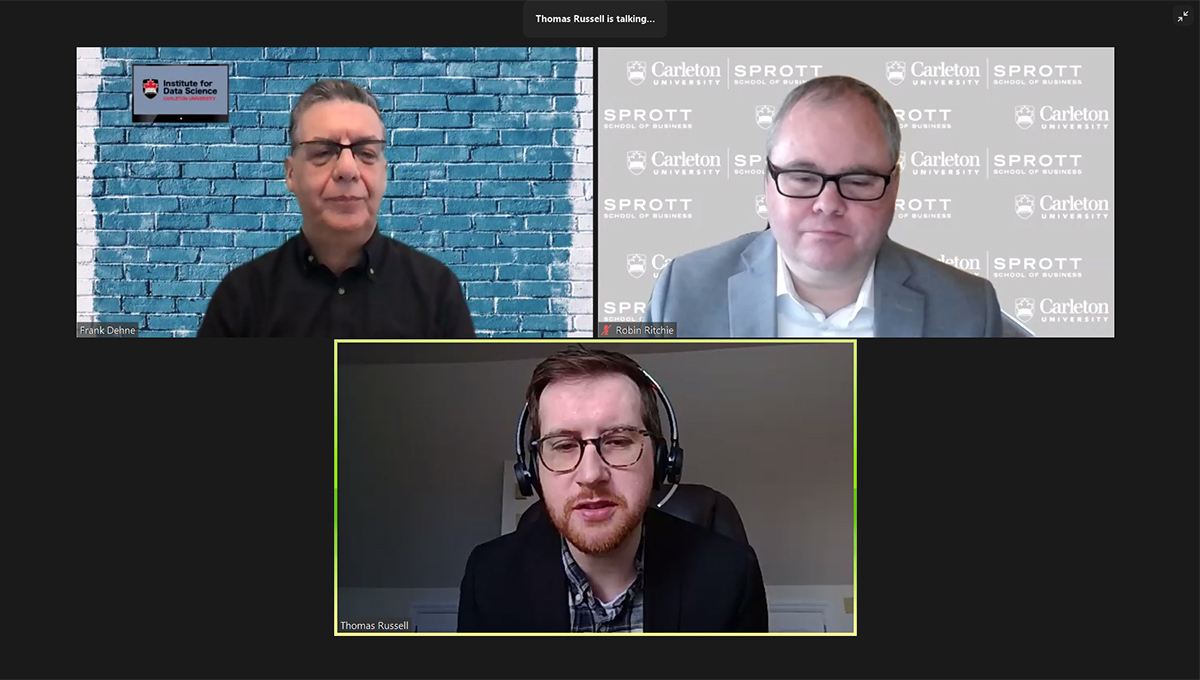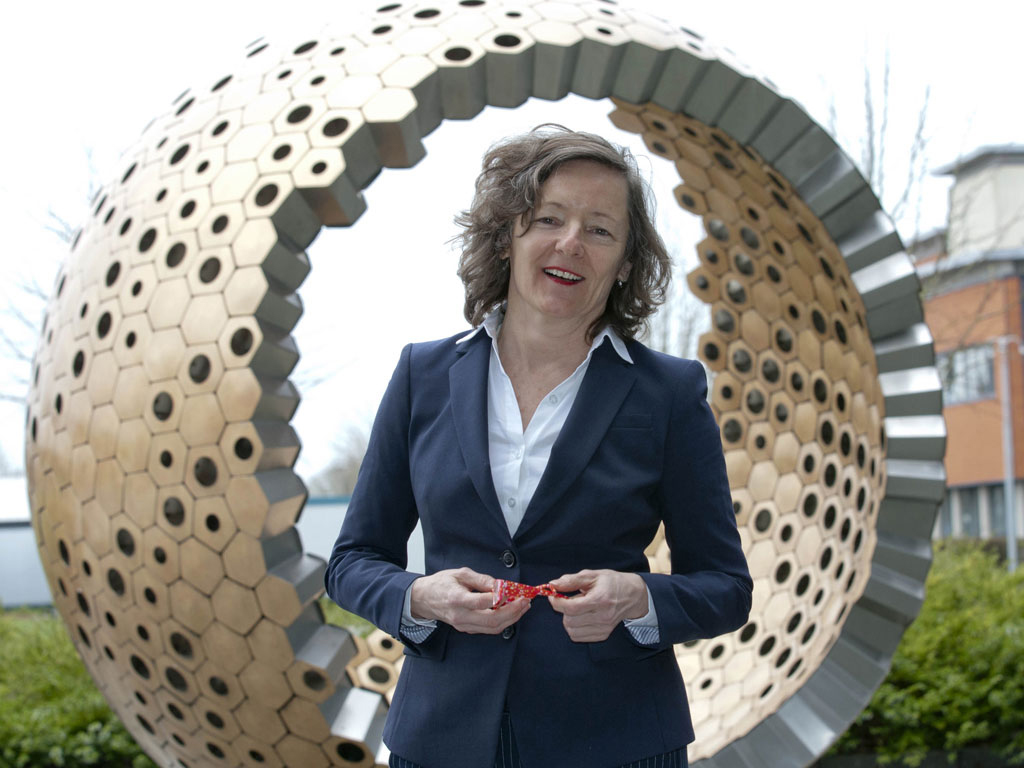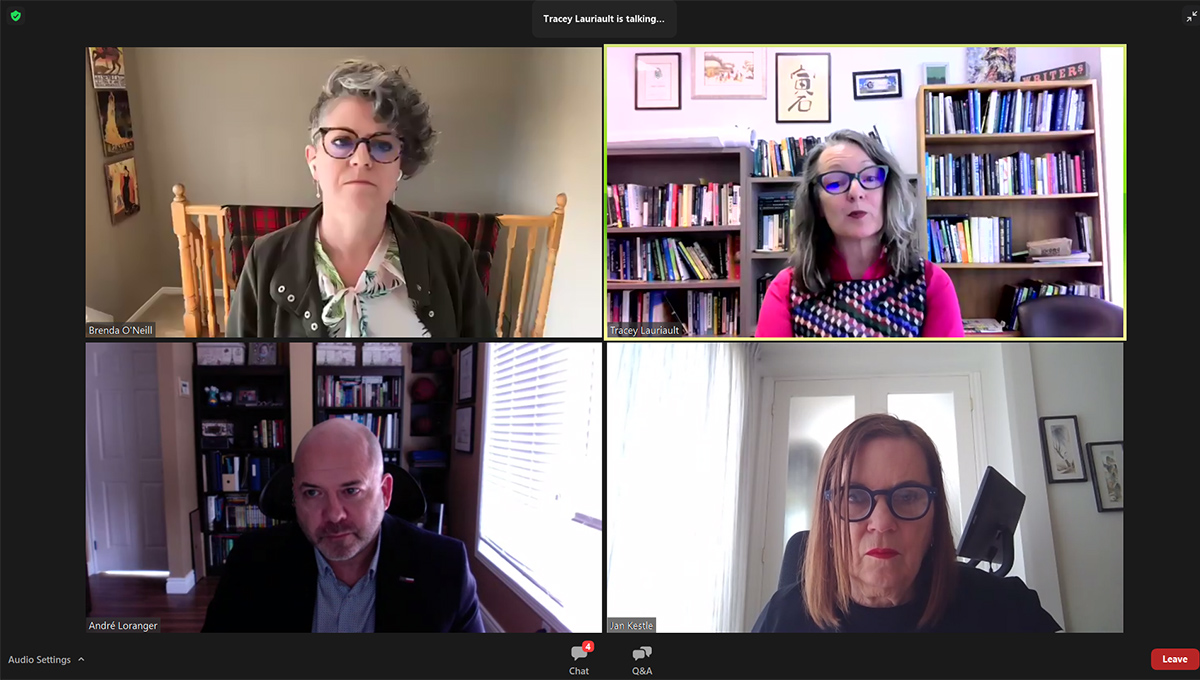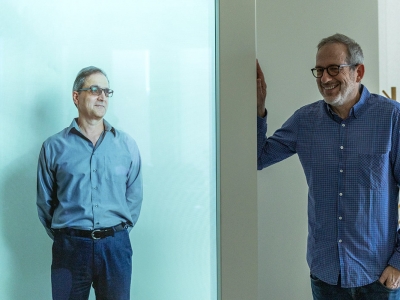By Brenna Mackay
Carleton University’s Faculty of Science and Institute for Data Science (CUIDS) hosted the seventh annual Data Day to celebrate the latest developments in data science and analytics research.
With more than 500 registered participants, the full-day virtual event on March 30, 2021 included presentations by Carleton researchers and industry experts, a keynote address, panel discussions and networking opportunities. The day also included a poster competition to showcase graduate student research in data science across all disciplines.
This year’s theme was AI: What’s Next? And Everything Smart, focused on a range of topics, including artificial intelligence, data governance, smart technology, big data and COVID-19.

President Benoit-Antoine Bacon
The day kicked off with an official welcome from Carleton President Benoit-Antoine Bacon and Science Dean Chuck Macdonald.
“Big data is increasingly central to the way we do business and is increasingly central to the way we live,” said Bacon.
“Here at Carleton, we’re addressing the skills shortage by developing courses and programs that ensure that our graduates are well trained in this crucial area.”

Prof. Frank Dehne
Opening remarks were followed by updates from the Institute of Data Science delivered by Profs. Thomas Russell, Frank Dehne and Robin Ritchie.
Despite challenges presented by the COVID-19 pandemic, Carleton’s data science programs and research activities continue to grow steadily with new partnerships and programs. With more than 170 researchers from five faculties and 26 university departments, schools and institutes currently engaged in research involving big data, data analytics and social sentiment analytics, Carleton is active in the field.
“Data science is something that is naturally interdisciplinary, whether it be science or engineering, business or economics,” said Russell.
“We all face a common problem trying to efficiently use data to recognize patterns, forecast and to ultimately inform decision-making,”

The Internet of Things
The event’s first keynote address was hosted by John Weigelt, national technology officer at Microsoft Canada. His talk, The Internet of Things, highlighted how COVID-19 has changed the field of data governance and open data. In order to demonstrate progress in the field, he argues that Canada needs to focus on skills development, building interdisciplinary partnerships and incremental innovation.
“There has never been a better time to be focused on data, the enablement of innovation and digital transformation to drive Canadian prosperity,” said Weigelt.
The afternoon agenda included a Fireside Chat about Data Governance moderated by Tracey Lauriault, a poster fair and sponsor gallery, and engaging, timely panel discussions including Everything Smart, moderated by Larry Kostiuk, dean of the Faculty of Engineering and Design, and Big Data and COVID-19, moderated by Rafik Goubran, vice-president (Research and International.)

Prof. Tracey Lauriault
The day concluded with the announcement of the poster fair winners, who were divided into three categories: Critical Data Studies, Introduction to Data Science and General.
Coming in first place in the Critical Data Studies category was Journalism and Communications PhD student Anna-Lena Theus with her poster, Privacy Compliance of Smart Streetlights: A case study of the city of Yellowknife’s smart city challenge proposal.
In the Introduction to Data Science categories, Alex Lane from the School of Information Technology and Julia Conzon from the Department of Geography and Environmental Studies received the first-place prize with their poster Towards evaluating the built-environment: a hybrid approach for identifying building entrance accessibility.
In the general category, Master of Applied Science and Computer Engineering student, Joe Samuel, received the top score with his poster A data-driven approach for designing secure systems.
To learn more about studying data science at Carleton, visit the CUIDS’ website.

Thursday, April 8, 2021 in Events, Faculty of Science, Information Technology, Research
Share: Twitter, Facebook



